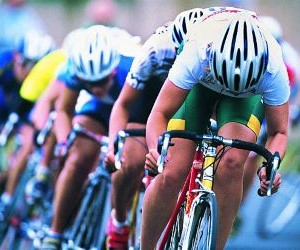Discover key indicators to spot potential breakaway winners during Giro d’Italia medium-mountain stages, enhancing race predictions.
HOW DO I APPROACH BETTING ON OLYMPIC CYCLING ACROSS ROAD, TRACK, MTB, AND BMX?
Olympic cycling brings together four disciplines—road racing, track cycling, mountain biking (MTB), and BMX—each with its own dynamics, athletes, and betting markets. Unlike league sports, the Olympics are a condensed showcase of talent where preparation, form, and national strength play decisive roles. For bettors, this means opportunities are high, but so is volatility. This guide from The Sports Geek breaks down how to evaluate each cycling discipline, what data matters most, and how to apply smart betting strategies to maximize value while managing risk.

Understanding Olympic cycling events
Olympic cycling spans four main disciplines, each requiring unique skills and offering different betting dynamics. To succeed, bettors must understand the structure, event formats, and the type of athletes who typically dominate.
Road cycling
Road cycling at the Olympics consists of road races and time trials. The road race is unpredictable due to team tactics, weather, and challenging courses. Time trials, on the other hand, favor specialists who excel at pacing and sustained power. Betting markets often highlight favorites, but upsets are common given the one-day format.
Track cycling
Track events include sprints, pursuits, keirin, and team competitions. The velodrome environment produces explosive performances, where fractions of a second determine outcomes. Bettors must consider athlete form, qualifying times, and national investment in track programs, as certain countries like Great Britain and Australia traditionally dominate.
Mountain biking (MTB)
Olympic MTB features cross-country races on technical, hilly courses. Success depends on endurance, bike-handling skills, and race-day conditions. Bettors should track recent World Cup results and technical course similarities to identify contenders.
BMX
BMX racing is short, explosive, and unpredictable, with crashes often reshuffling the order. While favorites exist, luck plays a bigger role than in other cycling disciplines. Bettors should weigh both form and the chaotic nature of the event.
Key betting factors by discipline
Each cycling discipline demands a different betting approach. A one-size-fits-all strategy won’t work, so tailoring your analysis to the event type is critical.
Road cycling betting factors
Course profile: Climbers thrive on hilly circuits, while sprinters benefit from flat finishes.
Team strength: National squads vary in depth and strategy execution.
Weather: Wind, rain, and heat can swing results dramatically.
Track cycling betting factors
Qualifying times: Strong indicators of athlete form and peak readiness.
Specialization: Some riders excel in sprints, others in endurance pursuits.
National programs: Countries investing heavily in velodrome facilities often dominate medal tables.
MTB betting factors
Technical ability: Steep descents and tricky obstacles favor skilled handlers.
Recent World Cup performance: Strong correlation with Olympic form.
Course familiarity: Riders used to similar terrains hold an edge.
BMX betting factors
Starting gate reaction: Crucial in short, explosive races.
Crash likelihood: A wildcard that can upset even top contenders.
Heat and lane draws: Influence positioning and probability of success.
By tailoring your betting approach to each event, you improve your chances of identifying value beyond headline favorites.
Smart strategies for Olympic cycling betting
Betting on Olympic cycling requires balancing research with risk management. Given the unpredictable nature of the Games, smart bettors focus less on “guarantees” and more on finding value opportunities across markets.
Diversify your bets
Instead of wagering heavily on a single event, spread bets across multiple disciplines or markets. For example, consider placing smaller bets on podium finishes, head-to-head matchups, or stage outcomes. This reduces exposure to a single unpredictable race.
Use data-driven analysis
Leverage historical Olympic results, World Cup standings, and recent form when evaluating riders. Sportsbooks often overvalue big names, creating opportunities for savvy bettors to back rising athletes at favorable odds.
Bankroll management
Olympic events occur over a short timeframe, tempting bettors to overcommit. Set a strict budget, allocate unit sizes, and resist chasing losses. Treat Olympic betting as a strategic investment, not a quick gamble.
Limit stake size to a fixed percentage of your bankroll.
Track bets across disciplines to monitor exposure.
Stay disciplined to preserve funds for high-value opportunities.
Capitalize on live betting
Live betting markets often provide overlooked value, especially in road races where conditions shift rapidly. Observing rider form mid-race can help identify opportunities before odds adjust.
Ultimately, approaching Olympic cycling betting means blending knowledge of each discipline with disciplined bankroll strategies. By doing so, you maximize entertainment and potential returns while navigating one of the most exciting spectacles in global sport.
YOU MAY ALSO BE INTERESTED








